QuestionI read the inquiry from a woman who stated her horse was allergic to wheat and oats. I have a 16 yr. old mare that has had a not-quite-right issue going on for some time. She has body pain in her ligaments and is not holding weight. I just had the blood tested and her liver and kidneys and most of her blood panel was very good. The oddity is a low platelet count and some other indicator that she has wide-spread inflammation. I keep getting the feeling it is some sort of toxicity or allergy to something I am feeding. I have stopped feeding processed feeds and recently took her off her joint supplement (due to the fact that they are shellfish derivatives) in case that is a culprit. She is getting oats, grass hay, vit/min supplement for grass diets, stabilized ground flax seed, and Cool 100 and black oil sunflower seeds for added fat. I thought oats would be the cleanest choice of grain but now realize a horse can be allergic to oats too! My question is how do you find out what they are allergic to and do you have any other ideas on where to look for a cause for these symptoms?
AnswerHello Sue,
Thank you for your question. I'm still torn by the idea of food allergies in horses. I'm not fully convinced that horses are allergic to specific ingredients, although the veterinary community may be better equipped to address the issue. I am convinced though that horses digestive systems can react to feed contamination and are particularly sensitive to mycotoxins in feeds. Mycotoxins are metabolites of fungus that can grow on plants. Its common under certain adverse growing conditions to have fungus forming on grains, which in turn produce mycotoxins that 'stick' to the grains. We see this often in corn and cereal grains used for horses like barley, oats and wheat. I have even seen wet/cold growing seasons that have resulted in fungus on legume forages.
Mycotoxin issues are not unique to the horse industry, poultry and hogs are particularly sensitive. Some mills will, especially those handling ingredients for the feather and pork industries, will test incoming loads of grain to ensure mycotoxin levels don't exceed set thresholds. Where the sensitivity in some species can cause death, horses often suffer from 'performance' or 'production limiting' side effects from high feed-born mycotoxin levels. These effects can range from poor reproductive performance to the reactions you are describing.
It can be difficult to measure and/or mitigate cumulative mycotoxin levels in feeds, especially in years where growing seasons set up for perfect fungus forming conditions. But there are steps you can take to counteract their effects. Sodium bentonite is an ingredient frequently added to feeds to help bind mycotoxins and it works really well. Bentonite can be purchased from feed mills that do their own mixing, and comes in 25kg bags. The problem is though, that the recommended feeding rate is about 200grams per day per horse, which equates to about 2 cups. Because bentonite is essentially dirt, it doesn't work well in top-dressing situations. Its not super tasty and if you try to dump it on top of your horse's feed she may not eat it. There is a product on the market that I like to use in these cases, and that you may have easy access to being from the US. I would suggest trying Alltech's LifeForce Formula for at least 30 days, ideally 60. It has an ingredient base that can help bind mycotoxins and provide additional digestive benefits. It may be slightly (10-15%) less effective than bentonite but has a considerable lower feeding rate and is much more palatable. Overall, it may be more successfully top dressed over your feed. In your case, I would also suggest removing the oats from the diet to see if the issues resolve. If you need to replace them with a non-fat energy source (since you have a lot of fat in there now) I would recommend feeding beet pulp in the place of oats. I can't say enough good things about using beet pulp as a safe and effective source of dietary energy!
Of course, I would also advocate involving your vet in the process in case there's an underlying problem that's not related to digestive issues. Let me know if this helps.
Thanks, Corlena

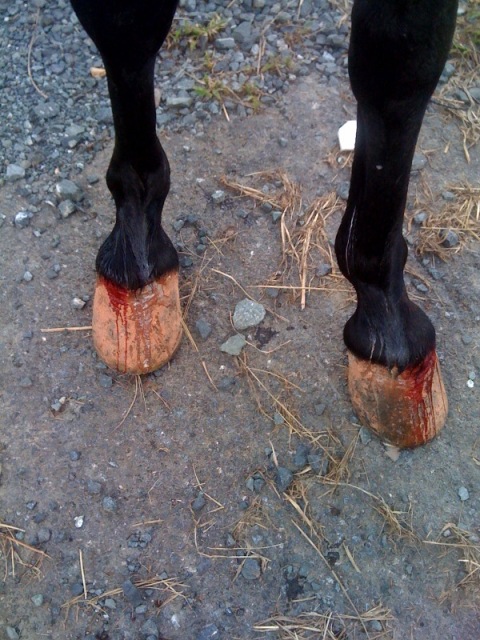 bleeding hooves
Question
bleeding
hi corlena! I have attached a photo s
bleeding hooves
Question
bleeding
hi corlena! I have attached a photo s
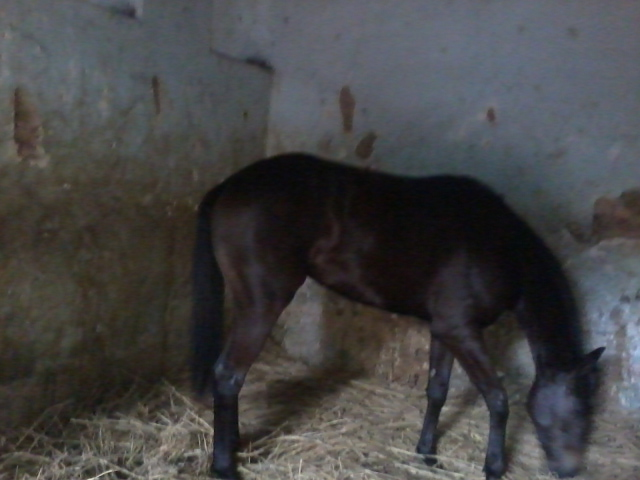 raw milk for under developed baby horses
Question
under developed
hello maam. top trainer
raw milk for under developed baby horses
Question
under developed
hello maam. top trainer
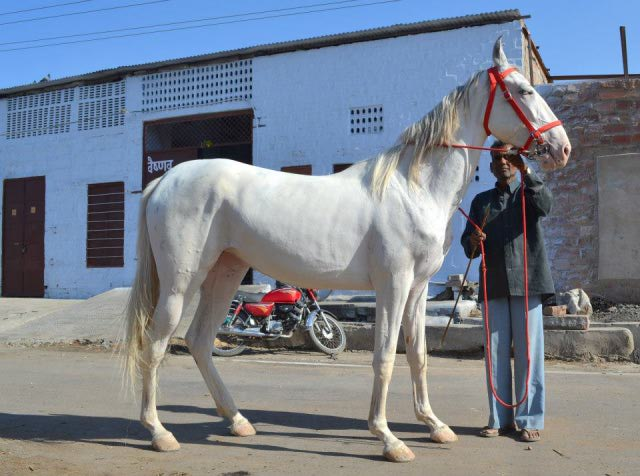 strong or weak
Question
strong or weak
hello maam, how this hor
strong or weak
Question
strong or weak
hello maam, how this hor
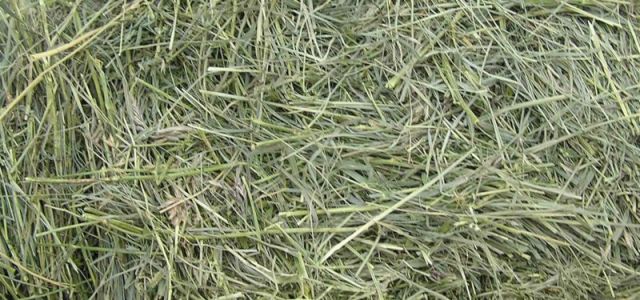 grass hay
Questionhello sir, what is grass hay? is it a type of h
grass hay
Questionhello sir, what is grass hay? is it a type of h
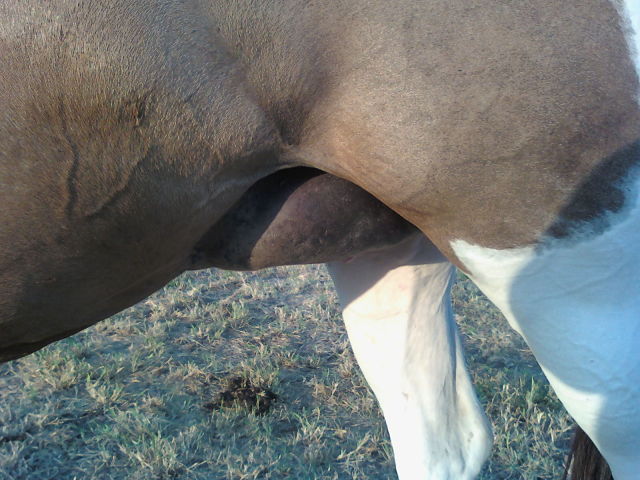 What could my horse be allergic to?
Question
Blue
I have a 14 year old paint mare that just
What could my horse be allergic to?
Question
Blue
I have a 14 year old paint mare that just